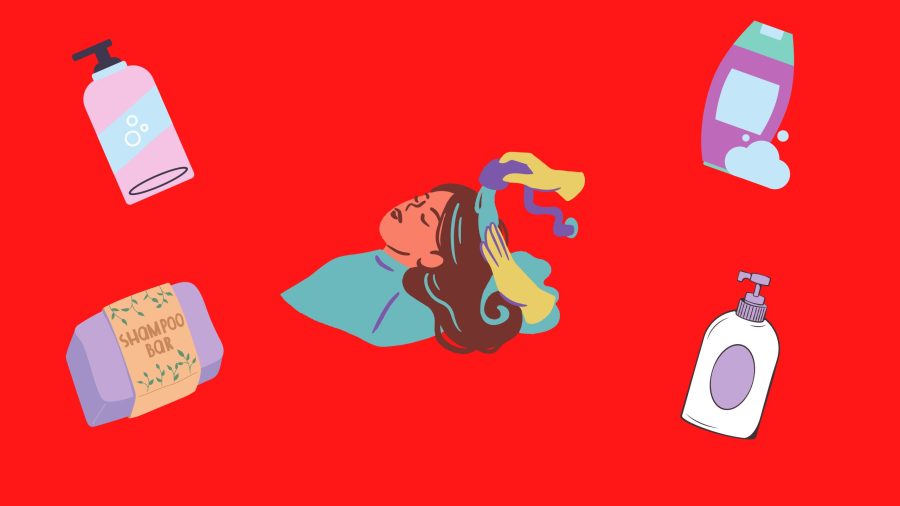OPINION: Sneaky ingredients in hair care products to watch out for
May 5, 2022
Hair loss and thinning is real, especially at this age. Part of it is due to normal growth; some of it is due to stress. However, another factor that plays a role in this process are the products that you use directly on your hair and scalp. These include shampoos, gels, mousse and sprays.
The key problem lies in the ingredients that are included in these products, so I have included two common ones below.
Alcohol
The first ingredient is alcohol. Yes, drinking alcohol definitely will have adverse effects on your hair’s health, but applying products containing certain types of alcohols will also do more damage than good. There are two types of alcohol: short-chain and long-chain fatty alcohols.
Have you ever felt like your hair started breaking after using that mousse or hair spray? It may be due to the short-chain alcohol in it. This type has been proven to dry out your hair. It not only promotes breakage, but it also leaves your hair in a frizzy mess.
How do you know your hair product contains short chain alcohol? Look for ethanol, SD alcohol, denatured alcohol, propanol, propyl alcohol and isopropyl alcohol in the ingredients list. If these are present, it may be beneficial to avoid that purchase.
In general, opting for products that do not contain alcohol would also be a smart way to stay on the safe side. However, you can still purchase products that contain a type of alcohol called long-chain fatty alcohol.
Long chain alcohols have the opposite effect of short chain alcohols. Instead of leaving your hair in a dehydrated mess, long chain fatty alcohols promote moisturization and softness. They are present in products under the names of Behenyl alcohol, Cetyl alcohol, Cetearyl alcohol, Myristyl alcohol, Stearyl alcohol, and Lauryl alcohol.
Sulfates
This is a more common ingredient in shampoos and conditioners. It is what promotes the foamy white mass of bubbles. There are different shampoo surfactants, and sulfates fall into the anionic category.
Anionic Sulfates contain a negative charge that promotes frizzy hair. When shampoo bottles say “sulfate-free,” they are referring to the idea that they did not use an anionic surfactant in the formulation.
Sulfates have been proven to be effective cleaners. However, sulfates can have negative side effects for sensitive hair types as they are too strong. Sulfates can not only strip the hair of all sebum and dirt, but they also take away a lot of the moisture and leave the scalp dry. Therefore, people with chemically-altered, dry, or sensitive hair should avoid the use of sulfate-containing products.
A common misconception is that sulfates can cause cancer, but there is no scientific evidence to prove this claim. Sulfate-containing shampoos can be utilized for most hair types.
It can help to start reading into the ingredient list if your hair’s health is deteriorating. I hope this helps you make some changes to your hair care routine and provides some insight into the misconceptions surrounding alcohols and sulfates.
Commentary writer Vidhi Parekh can be reached at [email protected].






















